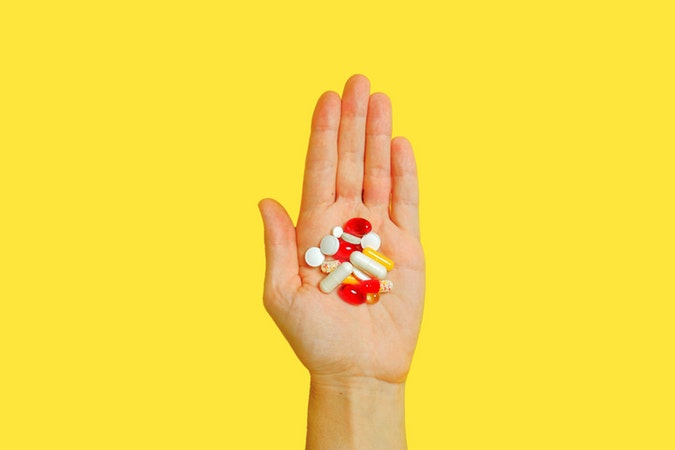
Cannabidiol (or CBD for short) is catching on like wildfire, and for good reason too! CBD, as well as a few other cannabinoids, have been shown to help relieve insomnia, anxiety, chronic pain, sleep issues, menstrual cramps, PTSD and much, much more.
While recent research has proven that CBD is safe to use (with little-to-no side effects) there is one concern; CBD may have potential drug interactions.
So, if you’re on any kind of medications or over-the-counter drugs, here are some things to be aware of before using CBD:
CBD Oil Drug Interactions
It’s not abnormal for prescription drugs to interact with other compounds. There are some prescription medications that can even have interactions with foods like grapefruit and pepper.
However, these CBD interactions generally occur when an unusually high CBD dosage is administered. Most reported drug interactions have also been relatively mild, but they’re still important to keep in mind.
According to the District of Columbia Department of Health, CBD can also increase the serum concentrations ― the amount of medication in your blood ― of a ton of other drugs, including antidepressants, antihistamines, antiretrovirals, calcium channel blockers, and beta-blockers.
One of the interactions CBD may have with prescribed drugs is inhibiting the enzyme system in the human cytochrome P-450.
What is the Cytochrome P-450 System?
The Cytochrome P450 (CYP450) is an enzyme family found in our liver, which is responsible for metabolizing over 60% of all drugs.
CYP450 is important because doctors determine the appropriate dosages of medications based on the processing times within your system. They make calculations using the average time it takes for drugs/medications to be processed through the CYP450 system.
If only one drug is being ingested (and the P450 system is normal and healthy) then the averages provide pretty accurate dosage information.
Certain substances or an unhealthy CYP450 system can alter the processing times, by making the drugs metabolize slower (or faster) than they would normally, on their own.
What Drugs Should Not Be Taken With CBD?
The Indiana University Department of Medicine created a Drug Interactions Table which shows drugs that are metabolized by the CYP450 system. Clinical studies have shown drugs that interact with the CYP450 system may potentially also interact with CBD.
Here is a list of drugs that are known to use the CYP450 system:
- Steroids
- Calcium channel blockers
- Antihistamines
- Prokinetics
- HIV antivirals
- Immune modulators
- Benzodiazepines
- Antiarrhythmics
- Antibiotics
- Anesthetics
- Antipsychotics
- Antidepressants
- Anti-epileptics
- Beta-blockers
- PPIs
- NSAIDs
- Angiotensin II blockers
- Oral hypoglycemic agents
- Sulfonylureas
This list does not include all of the potential medications impacted by cannabidiol, so check with your doctor if you’re taking any medicines or over-the-counter drugs to ensure your health and safety.
In Conclusion
It’s hard to determine what exactly prescribed medications may have an interaction with CBD, so if you’re wondering what drugs should not be taken with CBD, talk to your doctor or healthcare professional first.
CBD can provide several health benefits such as pain relief, anti-anxiety, anti-nausea, and in some cases used as an anti-inflammatory and anti-seizure supplement. Talking to your doctor is the safest, smartest way to make sure that you don’t experience any interactions between CBD and your medications.
Just like anything else you put in or on your body, it’s best to err on the side of caution and know, to the best of your ability, exactly what the potential side effects are.
About The Author:
Stacey Smith is a freelance health writer. She is passionate to write about women’s health, dental health, diabetes, endocrinology and nutrition and provides in-depth features on the latest in health news for medical clinics and health magazines.




